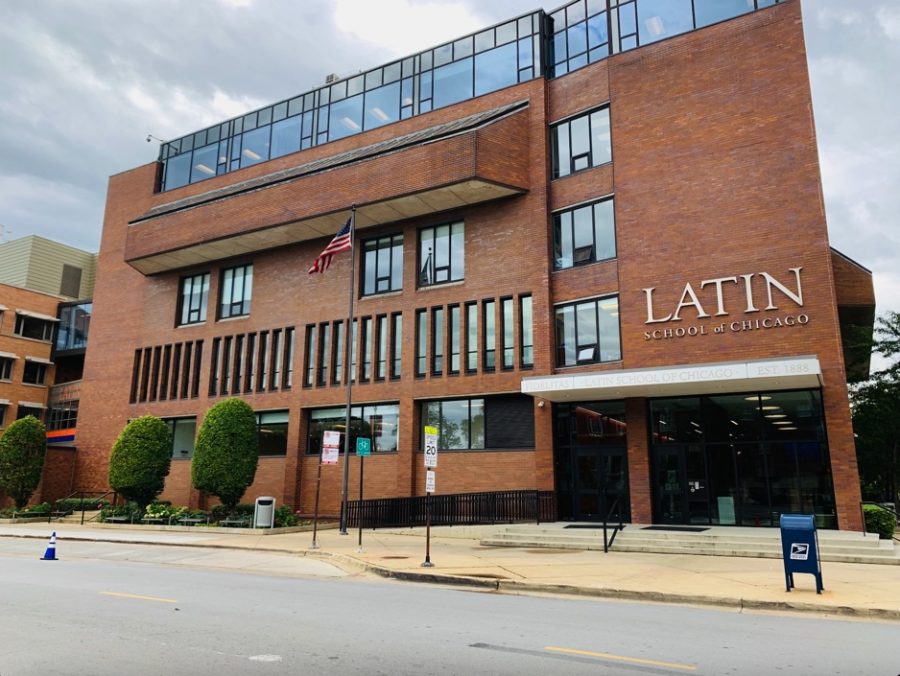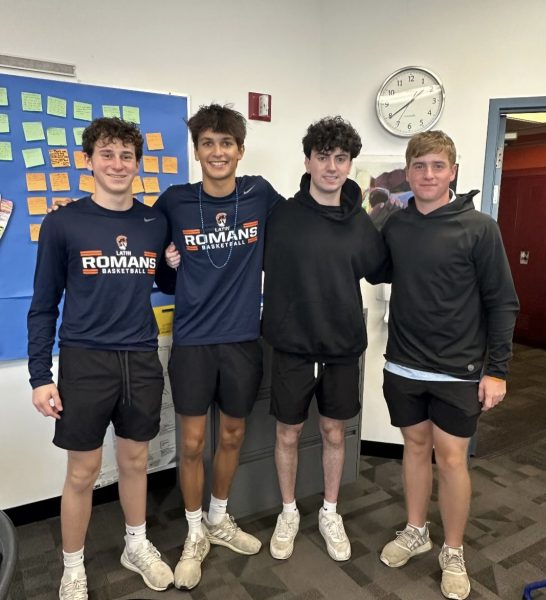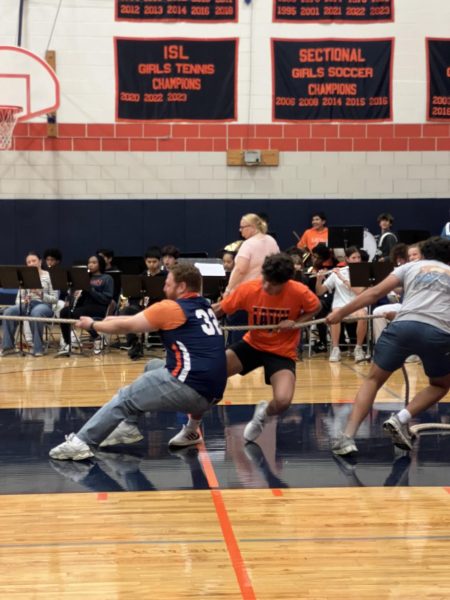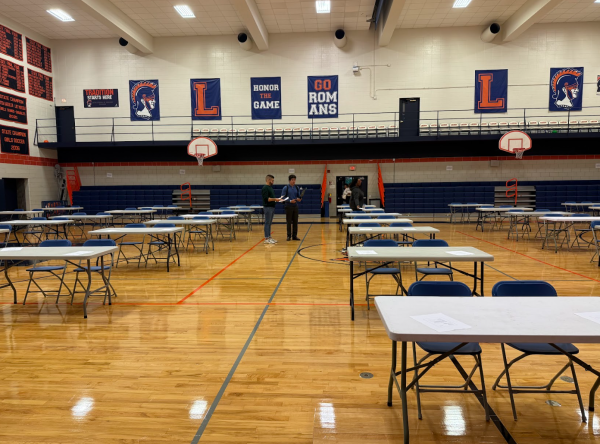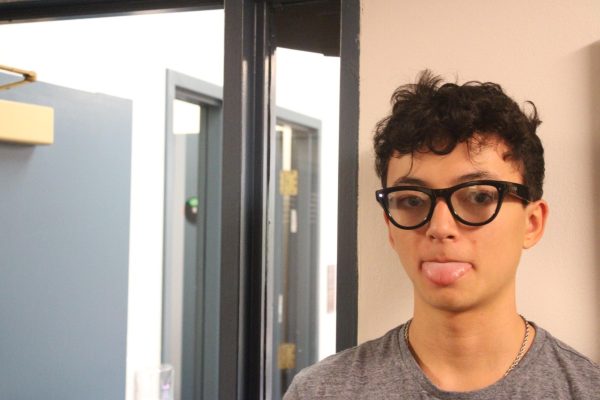Union Blasts School’s Policy On COVID-Related Absences As `Self-Defeating’
Members of the Latin School Union have expressed unhappiness with the reversion to pre-pandemic time off protocols.
On October 13, the Latin School Union (LSU) sent out a sharply worded newsletter detailing that the administration will be reverting paid time off policies for faculty and staff to what they were before pandemic times, and any COVID-related absences will be categorized as regular sick days. There will no longer be extra days set aside—a “self-defeating policy at best,” according to the newsletter.
When the pandemic first began, Latin adhered to the Families First Coronavirus Response Act (FFCRA). This act arranged for extra paid time off for COVID purposes. Originally, it was set to expire on December 31, 2020. However, at that time, the pandemic was not yet in a place where the U.S. Department of Labor felt it would be appropriate to put an end to additional days. There were not one, but two extensions beyond then, and the most recent expired on September 30.
Latin’s Director of Human Resources Susan Bolon said, “Both of these extensions provided employers with an immediate tax credit, meaning that the leave benefit was federally funded, so that the leave benefit was at no additional cost to Latin, or any other employer that chose to offer it. With the expiration of the FFCRA extension and the related tax credit opportunity, Latin reverted back to our generous paid time off and leave benefits.”
At Latin, each faculty and staff member is allotted eight sick days and two personal days per year. Teachers returning to Latin are allowed two days to roll over from past years, as well. In Illinois, as of October 22, 2014, the state requires any full-time teachers or employees who work 600 or more hours in a school year 10 paid days off minimum, the exact amount Latin gives.
In response to the updated protocols, Upper School Latin teacher and union spokesperson Elissabeth Legendre said, “We are still in the middle of a pandemic, and I think that it is important to think about what behaviors we incentivize by having the policies that we have.”
Senior Arjun Singh echoed Ms. Legendre’s point. “The teachers are between a rock and a hard place with this new protocol,” he said. “Do you choose work over health and safety? Health and safety of oneself and those around should be prioritized, and the emergence of this protocol undermines that, in my opinion.”
However, given that as of last week, 100 percent of faculty and staff have received their COVID vaccine, there is a lower risk that teachers will both catch the virus and be symptomatic. If they are asymptomatic, they still need to stay home, but they have the option to teach remotely for the time being. The hope, though, is that this model will not be reverted to unless absolutely necessary.
If a teacher were to get COVID, regardless of vaccination status, they would need to be quarantined for 10 days, likely using up most of their sick days. This is unlike pre-pandemic times where a teacher who caught the flu, for example, essentially needed to miss only days where they didn’t feel well enough to come in-person. COVID, however, requires people to be out of commission, even if they are asymptomatic, for 10 days.
In contrast with Latin, a bill is currently in the process of being passed saying that state public school teachers will be allotted COVID designated sick days. The bill has not passed yet, but if it does, Latin teachers will be the minority in the state who do not have this benefit.
At Latin, while there is the concern that teachers will ignore any potential illnesses and come into school anyway, Grace Bernard, a Lower School assistant teacher, reassures the community that this will not be an issue.
A few weeks ago, Ms. Bernard stayed home to recover from a cold. In theory, she needed to miss only one day of school, but in accordance with the community guidelines, she was required to get a PCR test and wait for negative results until she returned. Oftentimes, it takes 24 to 48 hours to receive results from these tests, putting her out for another day. In the end, Ms. Bernard missed two days of school, when in a normal year, she would have only missed one.
Since she still had banked sick days, her salary will not be docked, but if she were to get sick again, things may look different.
Ms. Bernard said, “I find it troubling to change [the protocols] in the middle of the pandemic, and in a way I know [the administration] said they don’t want to change things, but I feel like not continuing that policy is a choice to change it.”
“The thought of taking unpaid time off is particularly concerning,” she added. “Assistant teachers start out making $22,000 a year, which is less than $100 a day. To even take one or two days unpaid has a serious impact on our financial situation.”
Ultimately, Ms. Bernard prioritized her health, as well as her students, eliminating the concern of ignoring a potential illness.
What struck some students most about the return to pre-pandemic protocols for faculty and staff is the message the shift sends about the status of the pandemic.
Freshman Isabella Carney said, “COVID is something that completely changes how everyone lives their lives. It’s not fair to treat it like it’s a normal thing. [It] affects people a lot worse than just a regular illness.”
Arjun agreed, saying, “[These protocols] set a precedent that the virus isn’t that severe. I think respecting that it is, and not putting a limit on COVID-centric teacher absences is necessary right now when the COVID-19 pandemic is nowhere near its end.”
Moreover, on behalf of the LSU and the Latin community as a whole, Ms. Legendre said, “Shout out to the COVID task force. They are amazing. They are working hard, and nobody signed up for that when they got hired.”
The LSU recently announced that they had ratified their bylaws, which ultimately serve as a constitution for the union. Their most recent newsletter said that they will aim to foster an environment that is “inclusive, antiracist, and anti-biased.” Now, the union will begin the process of nominating candidates for their executive board. Those elections will be held in person, as required by federal law. Anybody who has signed a card is eligible to vote and run.
The union reports that they have also begun to form an interim bargaining committee and that their members are learning the basics of bargaining with an administration. The LSU will work with Cornell University, which is currently offering a course on collective bargaining. Three union members will participate in that course. Because this opportunity will take teachers out of the classroom for a few days, the Illinois Federation of Teachers (IFT) offered to cover the costs of substitute teachers to avoid extra costs for the school. Latin, however, declined this offer.
Per the LSU newsletter sent on October 13, “A teacher who makes roughly $70,000 a year for the 175 contracted days of work stood to lose roughly $1,200 to enroll in Cornell’s training.”
LSU members say they need training because the knowledge and skills required to form and operate a union are new to most of them. “I am learning so many new things which I never thought that I would know,” Ms. Legendre said. “We always say we want students to be lifelong learners. I am thinking, ‘Oh, this is me being a lifelong learner!’”

Eliza Lampert (’24) is a senior at Latin and is overjoyed to serve as one of this year’s Editors-in-Chief. During her time writing for The Forum, she...














































